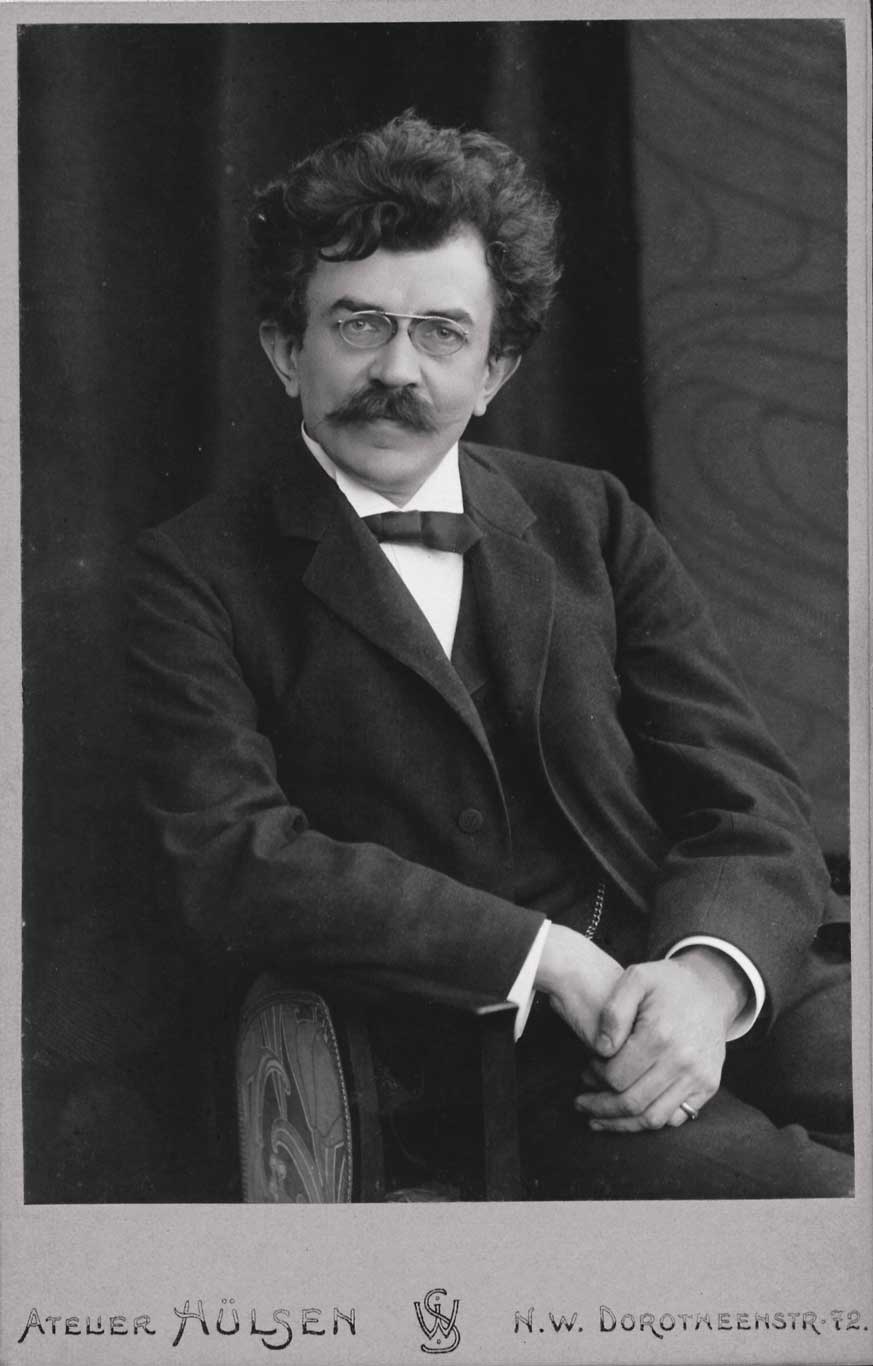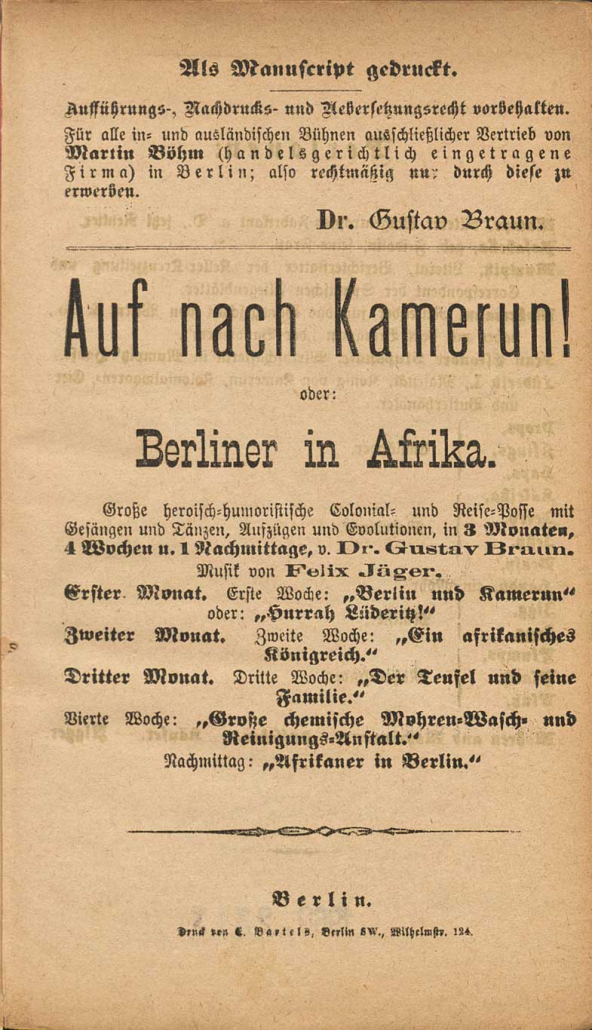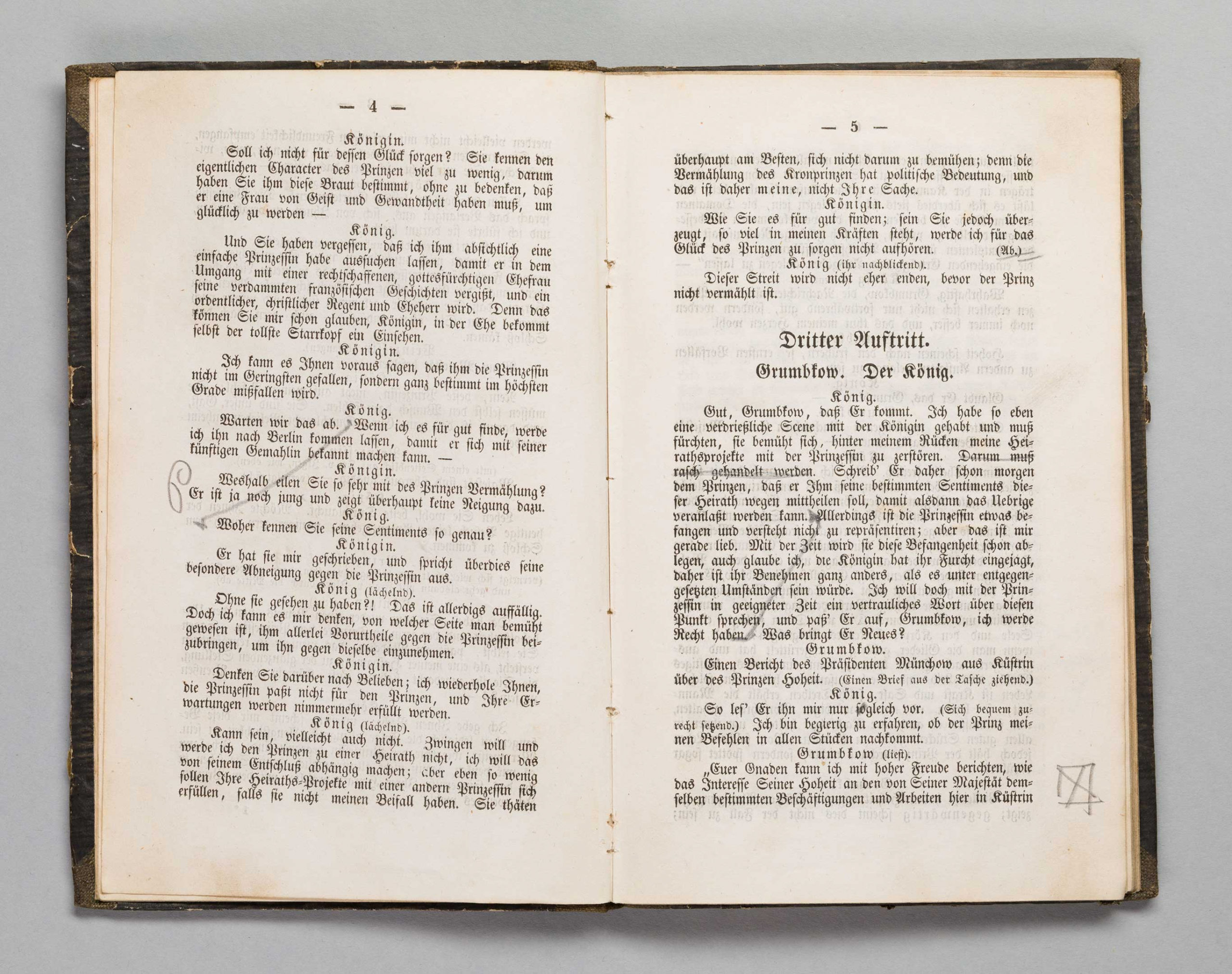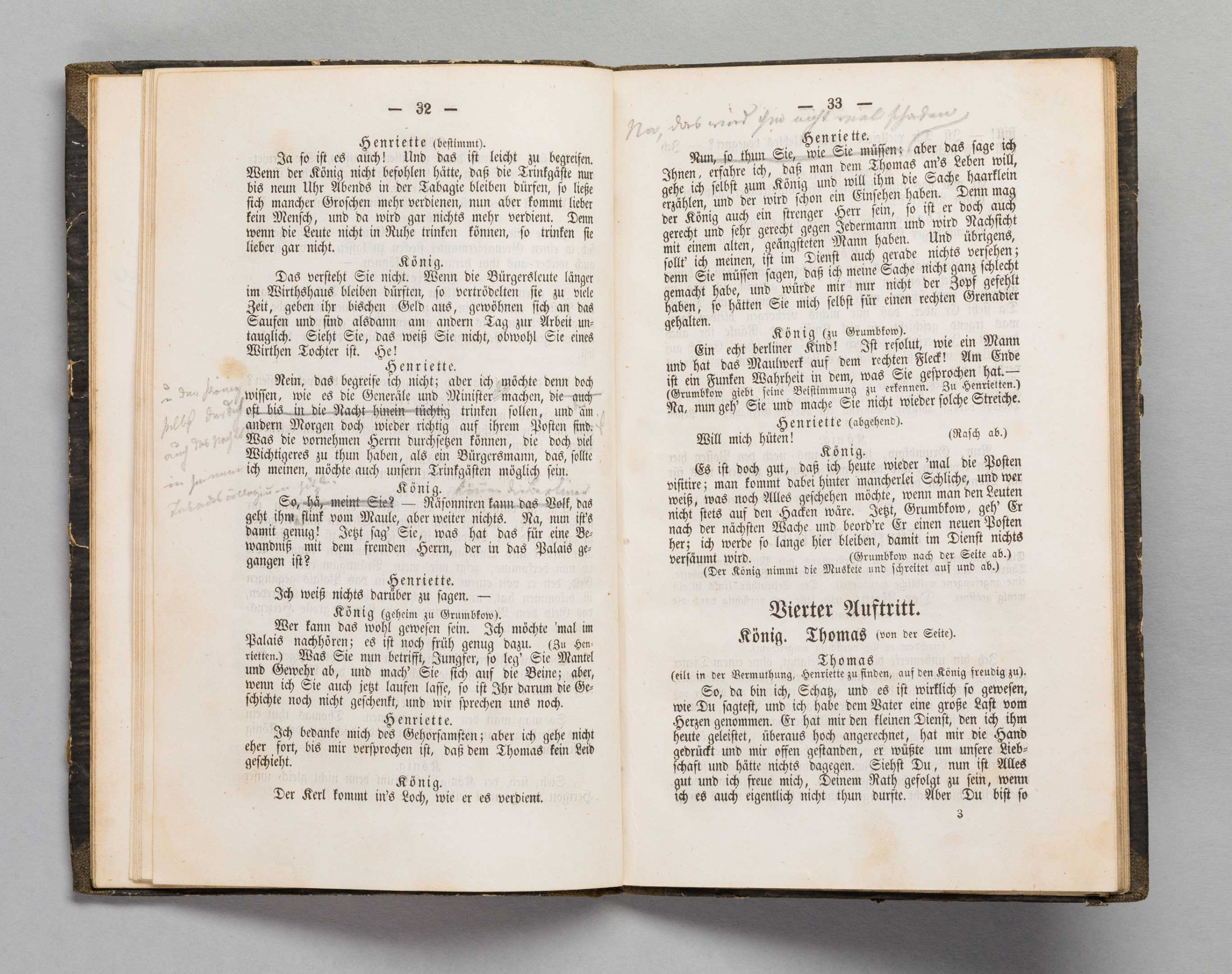14
The library of German privately printed books
Max Herrmann and
the Preußische Staatsbibliothek
Max Herrmann, 1907. digital copy
Privately printed books were not meant to be sold in bookstores, rather they were produced in small numbers by private individuals and companies without the involvement of an established publisher. This included preprints of theatre plays, which were used as prompt books and contained handwritten annotations and crossed-out passages. These books help us to understand how plays were performed. If a play was a flop, it was not reprinted.
Under pressure from the Nazis, Max Herrmann had to disband the Society of German Literature in 1938. In 1906, a contract had been drawn up that should the Society have to dissolve, the ownership of the library would be transferred to the Königliche Bibliothek. During the Second World War collections of the Preußische Staatsbibliothek were distributed to different locations, which resulted in a great number of items being lost or destroyed. Of the 15,000 volumes in the collection, only about 700 texts and prints of plays survived. Since there is no legal successor of the society, the few copies that remain are now available at the Staatsbibliothek in Berlin.
The life and work of Max Hermann is honoured today in the form of the Max Herrmann Award by Freunde der Staatsbibliothek zu Berlin e.V.
Boycott of Jewish Library Users: The Case of Max Herrmann
Max Herrmann (1865–1942) established as professor the subject theatre studies at the university of Berlin and was closely associated with the Königliche Bibliothek as a reader and patron. When the National Socialists seized power, he was already forced to leave his position as professor. After Jews were forbidden to access libraries at the beginning of 1938, the Preußische Staatsbibliothek allowed Max Herrmann to continue his research until 1941. However, he was increasingly subjected to repressive measures. He had to accept long waiting times, was denied access to the reading room and later he was forbidden to borrow books. At the end of 1942, Max Herrmann was deported to Theresienstadt where he died shortly afterwards.
In 1897 at the Society for German Literature, Max Herrmann initiated the founding of the library of German privately printed books. It was first accessible at the Königliche Bibliothek in 1905 and later at the Preußische Staatsbibliothek.
One of Herrmann’s greatest achievements was the gathering of materials which otherwise only rarely made it into library collections.
Preprint of the play Auf nach Kamerun, 1884.
The comment “printed as a manuscript for stage performances” on the title page shows that ownership of this preprint did not include any rights concerning the performance of the play. digital copy
This preprint (1859) of the play Die Brautschau Friedrich’s des Grossen by Julius Bacher was used as prompt book. The text contains many annotations and crossed-out sections. SBB-PK / Hagen Immel. CC BY-NC-SA 4.0





